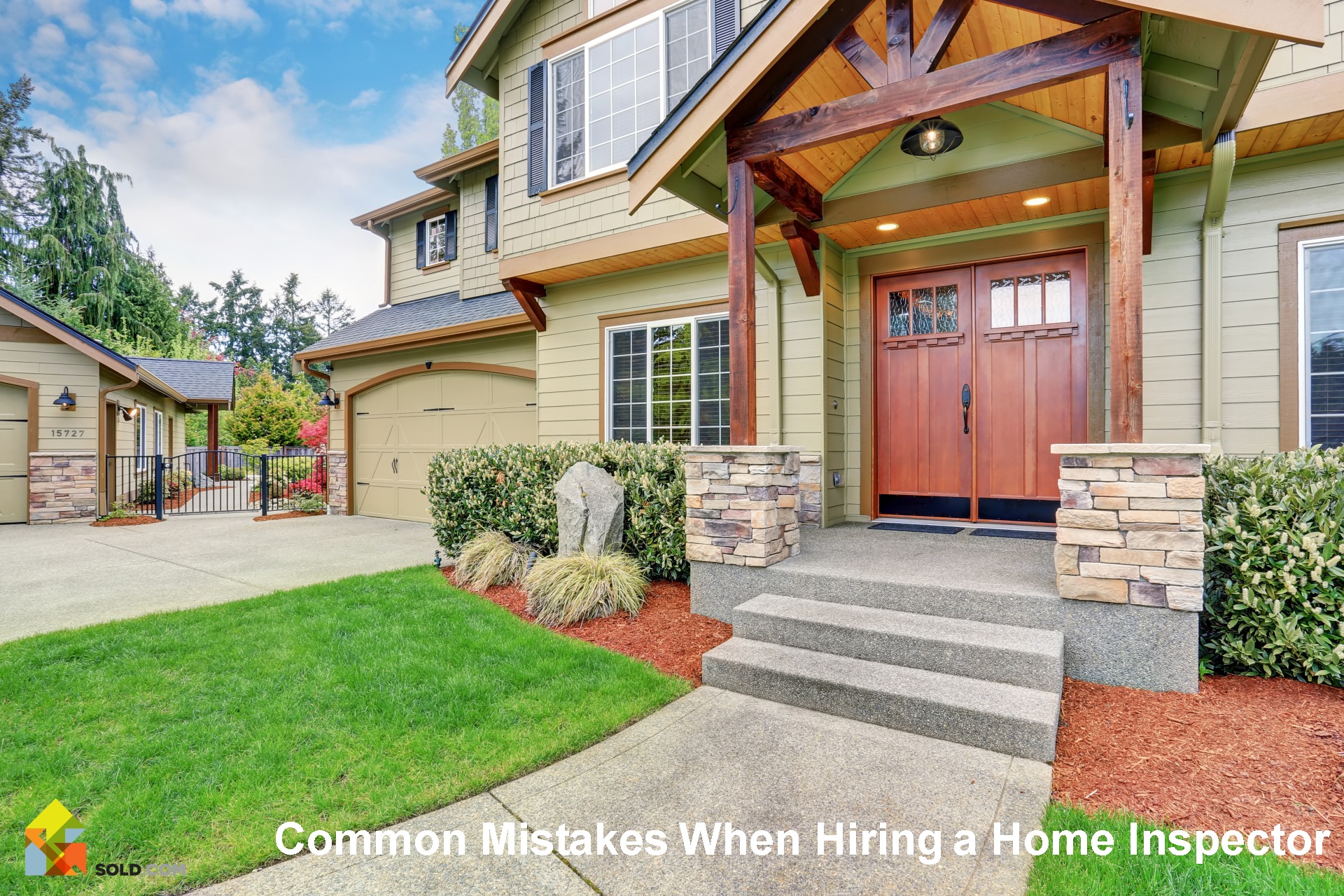
One of the most important steps in the home buying process is the inspection. This gives the buyer a critical opportunity to “check under the hood,” assessing the true condition of the property they’re about to buy.
Ideally, the inspection will reveal no major issues, which can allow you to proceed with the transaction feeling totally confident. If issues do arise, you’ll be in a better place to negotiate, asking the seller to either lower the price or make some repairs. And, if nothing else, the inspection can give you cover to walk away from the deal altogether, avoiding a home that you now know has big problems.
All of this is contingent on hiring a good, thorough home inspector. Often, your real estate agent will have an inspector they recommend, and it’s easy enough to just go with their suggestion. However, remember that this is your house and your money, so you’re more than welcome to find your own inspector.
Regardless of how you proceed, there are some common mistakes you’ll want to avoid. Here’s a quick rundown.
Errors to Avoid When Hiring a Home Inspector
Not Asking About Insurance and Credentialing
Even if you do end up going with your real estate agent’s suggested inspector, you can still do your due diligence and confirm that the inspector is properly credentialed. There are a number of accrediting boards, with the American Society of Home Inspectors being perhaps the most common and the most reputable.
You can also ask if the inspector has errors and omissions insurance, which protects both you and the inspector should he or she make any big errors or miss a particularly significant problem with the house. E&O insurance isn’t a requirement, but it’s definitely a good thing to ask about.
Not Requesting a Sample Home Inspection Report
Following the completion of the inspection, your inspector should furnish you with a thorough report, going through each room in the house and outlining any potential problems that were spotted. Ideally, this report will contain plenty of full-color photos and detailed descriptions. You can anticipate it being anywhere from 20 to 60 pages.
You want to make sure the report you get will be comprehensive and helpful. To that end, ask to see a sample report up front. This will give you a glimpse into the level of precision and detail you can expect from the home inspector.
Hiring an Inspector Who Also Does Repairs
You want a home inspector who inspects homes, plain and simple. If an inspector is also trying to earn a few bucks by making repairs, that creates an obvious conflict of interest. Such an inspector probably isn’t someone you want to trust.
Along the same lines, if you have an inspector who recommends a particular contractor, that’s also a conflict of interest, and another red flag.
Ask up front if the inspector is moonlighting in the home repair business… and if so, look elsewhere for your inspection needs.
Hiring Someone Who’ll Cut Corners
Before you hire an inspector, ask for a ballpark estimate of how long they think the inspection will take. The answer you’re looking for is probably somewhere between two and three hours, depending on the size of the home.
If you get a figure that’s quite a bit lower than that, you may not be dealing with a very thorough home inspector.
You can also verify in advance that the inspector will spend time in the attic and basement, on the roof, and around the outside perimeter of the home. Again, if you get an inspector who tells you otherwise, that’s a red flag.
These are just some of the most common mistakes that homeowners make when hiring inspectors; by avoiding them, you can maximize your chances of having a really good, high-quality inspection performed.
Get Your Home Sold
Meanwhile, if you’re on the other side of things and want to learn more about getting your home sold, we welcome you to claim your free seller’s report.
In it, you’ll get a personalized recommendation for the best way to sell a home.
Claim your SOLD.com report, and get more tips for selling your house, right away!

